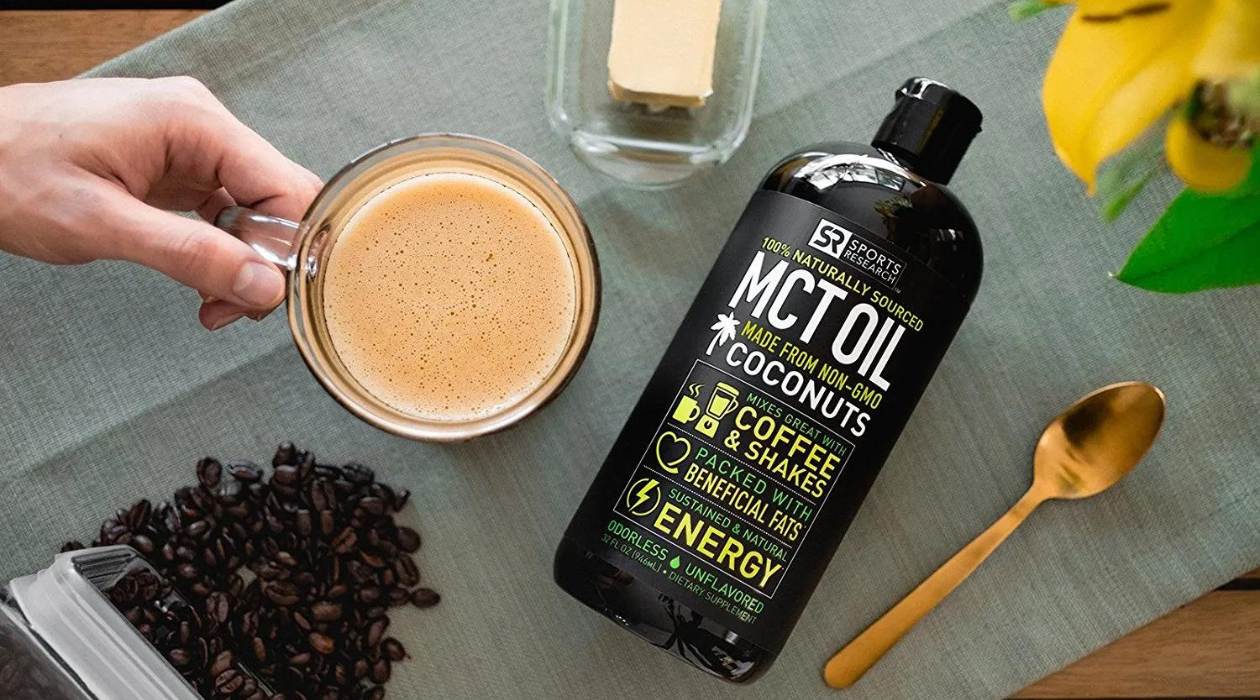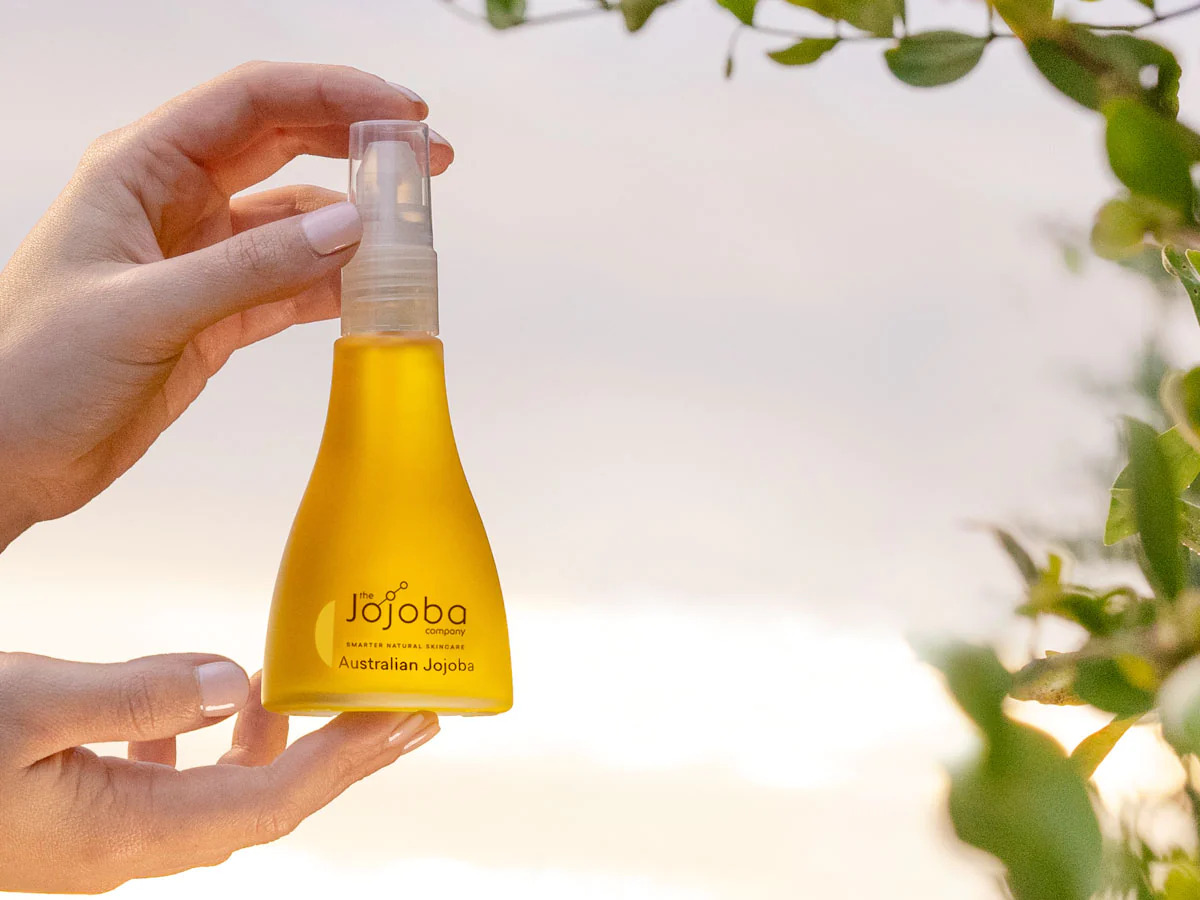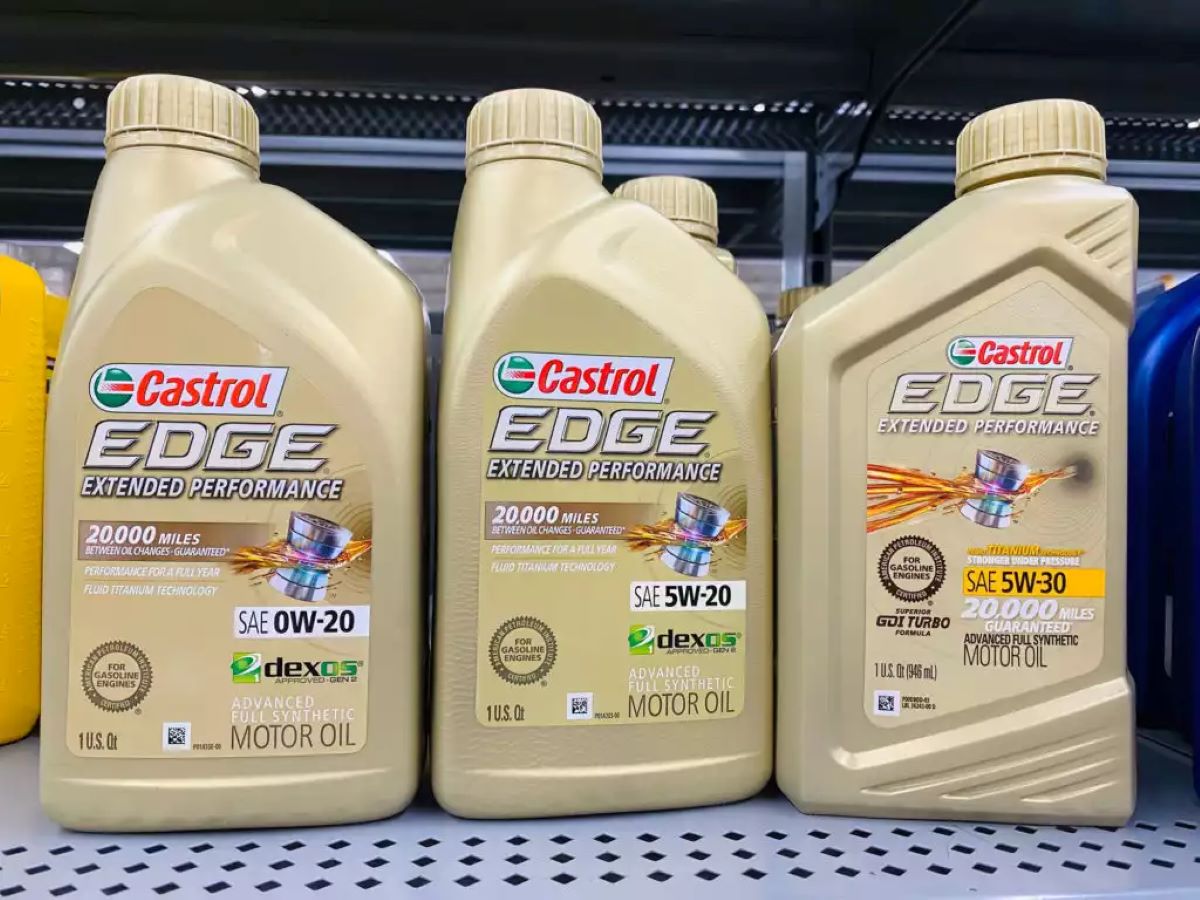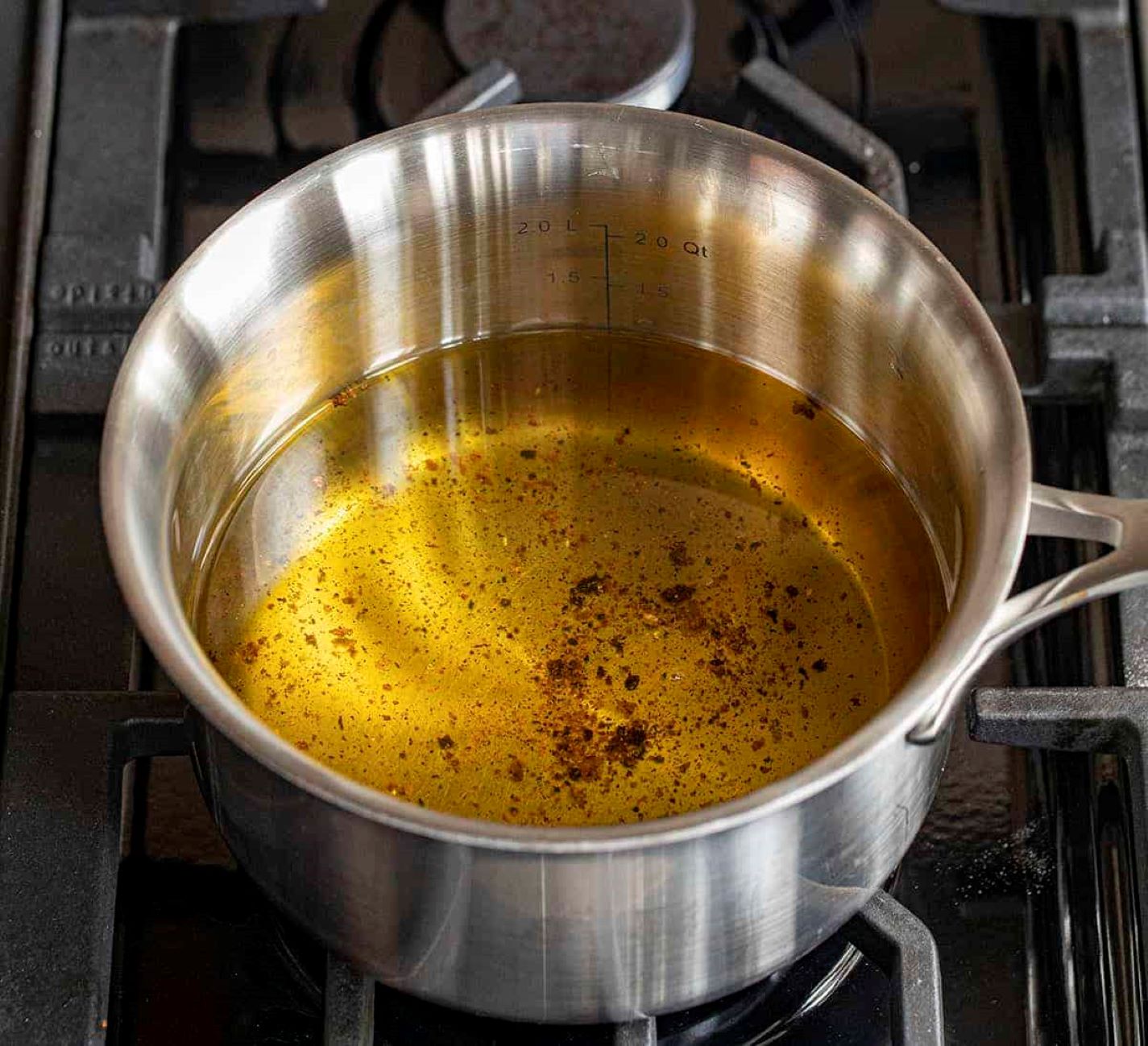

Articles
How To Store Mct Oil
Modified: December 7, 2023
Learn the best practices for storing MCT oil to ensure its freshness and efficacy. Read articles and tips from experts in our comprehensive guide.
(Many of the links in this article redirect to a specific reviewed product. Your purchase of these products through affiliate links helps to generate commission for Storables.com, at no extra cost. Learn more)
Introduction
Welcome to this comprehensive guide on how to properly store MCT oil. Whether you are new to MCT oil or have been using it for a while, understanding how to store it correctly is crucial for maintaining its quality and ensuring its longevity.
Before we dive into the details of proper MCT oil storage, it’s essential to have a clear understanding of what MCT oil is and its potential benefits. MCT stands for Medium Chain Triglycerides, which are a type of fatty acids commonly found in coconut oil, palm oil, and some dairy products.
MCT oil has gained popularity in recent years due to its numerous health benefits and versatility. It has been linked to improved weight management, increased energy levels, cognitive enhancement, and potential therapeutic benefits for various health conditions.
When it comes to choosing the right MCT oil, it’s essential to consider factors such as the source of the oil, the manufacturing process, and the purity of the product. Opting for a high-quality MCT oil will not only ensure better results but also contribute to its overall storage stability.
In this guide, we will discuss best practices for storing MCT oil to maintain its freshness, potency, and effectiveness. Proper storage is vital to prevent the oil from going rancid, losing its nutritional value, or developing an off taste and odor.
So, if you want to make sure that your MCT oil remains fresh and potent for an extended period, keep reading to discover the best ways to store it properly.
Key Takeaways:
- Proper storage of MCT oil is crucial to maintain its quality and freshness. Keep it in a cool, dark place, transfer to an airtight container, and monitor the expiration date to ensure maximum benefits.
- Choosing high-quality MCT oil and following best storage practices are essential for preserving its potency. Protect it from heat, light, and strong odors, and consult the manufacturer’s instructions for optimal storage.
Read more: How To Store Oil
What is MCT Oil?
MCT oil, or Medium Chain Triglyceride oil, is a type of fat that is composed of medium-chain fatty acids. These fatty acids are digested and metabolized differently than long-chain fatty acids, making MCT oil a unique and valuable dietary supplement.
MCT oil is primarily derived from natural sources such as coconut oil and palm oil. It is created through a process called fractionation, which involves separating the MCTs from the other components found in these oils. The resulting MCT oil is a clear, odorless liquid that is easy to incorporate into your diet.
One of the key characteristics of MCT oil is its shorter chain length compared to other types of fats. Medium-chain fatty acids contain between 6 and 12 carbon atoms, which allows them to be rapidly absorbed and transported directly to the liver. This efficient metabolism makes MCT oil a readily available source of energy for the body.
When consumed, MCT oil can be quickly converted into ketones, which are compounds that the body uses as an alternative fuel source. This process is particularly useful for individuals following a ketogenic or low-carbohydrate diet, as it helps them reach and maintain a state of ketosis. Ketosis is a metabolic state in which the body is primarily burning fat for fuel instead of glucose.
Beyond its role in supporting ketosis, MCT oil offers several other potential benefits. Studies have shown that MCT oil can aid in weight management, as it may increase feelings of fullness and promote the burning of calories. Additionally, MCT oil has been associated with improved cognitive function, including enhanced mental clarity and focus.
It’s important to note that while MCT oil offers many potential benefits, it should be incorporated into a balanced diet and lifestyle. MCT oil is calorie-dense, so it’s essential to consume it in moderation and as part of an overall healthy eating plan.
The Benefits of Using MCT Oil
MCT oil has gained popularity in recent years due to its potential health benefits and versatility. Incorporating MCT oil into your diet can offer various advantages that may contribute to overall well-being. Let’s explore some of the key benefits of using MCT oil:
- Weight Management: MCT oil has been shown to support weight loss and weight management. The unique metabolic properties of MCTs help increase feelings of fullness and boost calorie-burning, which can aid in achieving and maintaining a healthy weight.
- Enhanced Energy Levels: MCT oil provides a quick and reliable source of energy. The shorter carbon chain length of MCTs allows them to be rapidly absorbed and converted into fuel, making them an ideal energy source for both physical and mental activities.
- Improved Cognitive Function: MCT oil is known to have positive effects on brain health and cognitive function. The ketones produced from the metabolism of MCTs can serve as an alternative fuel source for the brain, potentially enhancing mental clarity, focus, and cognitive performance.
- Aids Digestion: MCT oil has been found to have beneficial effects on gut health. It possesses antimicrobial properties that can help maintain a healthy balance of bacteria in the gut, reducing the risk of digestive issues and supporting overall digestive function.
- Potential Therapeutic Benefits: MCT oil has shown promise in supporting certain health conditions. For instance, research suggests that MCT oil may have a positive impact on individuals with epilepsy, Alzheimer’s disease, and other neurological disorders. However, further studies are needed to fully understand the therapeutic potential of MCT oil.
- Easy to Incorporate into the Diet: MCT oil is incredibly versatile and can easily be added to various foods and beverages. It does not solidify at room temperature, making it convenient for use in salad dressings, smoothies, coffee, and cooking.
It is worth mentioning that while MCT oil offers potential benefits, individual results may vary. It is always advisable to consult with a healthcare professional or registered dietitian before incorporating MCT oil into your diet, especially if you have any underlying health conditions.
In summary, MCT oil provides a range of potential benefits, including weight management support, increased energy levels, improved cognitive function, and potential therapeutic effects. By incorporating MCT oil into your diet in a responsible and balanced way, you can take advantage of these potential benefits and enhance your overall well-being.
Choosing the Right MCT Oil
When it comes to choosing the right MCT oil, there are a few key factors to consider. With so many options available on the market, it’s essential to select a high-quality product that aligns with your needs and preferences. Here are some important considerations to keep in mind:
- Source: MCT oil is typically derived from coconut oil or palm oil. Both options offer MCTs, but coconut oil is generally preferred due to its sustainable sourcing and potential additional benefits, such as antimicrobial properties. Look for MCT oil derived from organic and sustainably sourced coconuts.
- Purity and Manufacturing Process: Opt for MCT oils that undergo a reliable manufacturing process to ensure purity and quality. Look for oils that are fractionated, meaning the MCTs are separated from other components through a filtration process. This helps remove unnecessary impurities and ensures a concentrated and pure MCT oil.
- Caprylic Acid (C8) and Capric Acid (C10) Content: MCT oil is made up of different fatty acids, with caprylic acid (C8) and capric acid (C10) being the most prized. These two fatty acids are metabolized quickly and efficiently, making them highly beneficial for energy production and ketone formation. Look for MCT oils with a high concentration of these fatty acids for optimal results.
- Taste and Odor: Some MCT oils may have a distinct taste or odor that can affect your overall experience. If you are sensitive to these factors, consider choosing flavorless or odorless MCT oil options to ensure easy incorporation into your favorite recipes without altering the taste of your dishes.
- Third-Party Testing and Certification: To ensure the quality, purity, and potency of the MCT oil you choose, look for products that undergo third-party testing and have certifications from reputable organizations. This ensures that the product meets high standards and is free from contaminants.
Additionally, it’s always beneficial to read reviews and seek recommendations from trusted sources or individuals who have experience with MCT oils. Their insights can provide valuable information and guide you in making an informed decision.
By considering these factors and selecting a high-quality MCT oil, you can ensure that you are getting a product that is not only effective but also aligns with your values and preferences.
Store MCT oil in a cool, dark place away from direct sunlight and heat sources. Keep the bottle tightly sealed to prevent oxidation and degradation of the oil. Avoid storing it in the refrigerator, as it can solidify at low temperatures.
Proper Storage of MCT Oil
Proper storage of MCT oil is crucial to maintain its quality, freshness, and effectiveness. Exposure to heat, light, and air can cause the oil to oxidize, leading to a loss of nutritional value and potentially developing an off taste and odor. Here are some essential guidelines to follow for the proper storage of MCT oil:
- Keep it in a Cool and Dark Place: MCT oil is sensitive to heat and light, so it should be stored in a cool and dark place. Avoid placing it near stoves, ovens, or other heat sources.
- Avoid Direct Sunlight: Sunlight can accelerate the oxidation process, degrading the quality of the oil. Store MCT oil in a cabinet or pantry away from direct sunlight.
- Airtight Container: Transfer the MCT oil from its original packaging to an airtight container to minimize exposure to air. Oxygen can promote oxidation and spoilage, so airtight containers help maintain the oil’s freshness.
- Choose Dark-Colored Containers: If possible, opt for dark-colored glass bottles or containers to further protect the oil from light. Dark glass helps block out harmful UV rays and maintain the oil’s integrity.
- Seal the Container Properly: Ensure that the container is tightly sealed after each use. This helps prevent air from entering and prolongs the shelf life of the oil.
- Store Away from Strong Odors: MCT oil can absorb strong odors from its surroundings. Keep it away from spices, cleaning agents, or any other strong-smelling substances to avoid flavor contamination.
By following these storage guidelines, you can help preserve the quality and potency of your MCT oil for a longer period. It is worth noting that different brands may have specific storage recommendations, so it’s always advisable to refer to the manufacturer’s instructions for best results.
Additionally, it is essential to monitor the expiration date of your MCT oil and discard it if it has passed its shelf life. Using rancid oil can lead to digestive discomfort and a compromised taste experience.
Remember, proper storage not only maintains the freshness and effectiveness of your MCT oil, but it also ensures that you get maximum benefits from your investment in this valuable dietary supplement.
Read more: How To Store Essential Oils
Best Practices for Storing MCT Oil
When it comes to storing MCT oil, following best practices can help ensure its longevity and quality. Here are some essential tips to consider:
- Store in a Cool Environment: MCT oil is sensitive to heat, so it’s crucial to store it in a cool environment. Avoid exposing it to high temperatures, such as near a stove or in direct sunlight. A cool pantry or cabinet away from heat sources is an ideal storage spot.
- Protect from Light: Light can degrade the quality of MCT oil, so it’s important to protect it from direct sunlight. Opt for dark-colored glass bottles or store in a dark cupboard to shield the oil from harmful UV rays.
- Avoid Oxygen Exposure: Oxygen can cause oxidation and spoilage of MCT oil. It’s recommended to transfer the oil to an airtight container to minimize oxygen exposure. Ensure the container’s lid or cap fits tightly to prevent air from entering.
- Keep Away from Strong Odors: MCT oil can absorb strong odors from its surroundings, which can affect its taste and quality. Store it away from potent-smelling substances like spices, cleaning agents, or other pungent foods.
- Do Not Refrigerate: MCT oil should not be refrigerated as it can cause solidification. Keeping it at room temperature is sufficient for proper storage. Refrigeration can make the oil difficult to pour and may affect its taste and texture.
- Monitor the Expiration Date: MCT oil typically has a shelf life of 1-2 years, but it’s important to check the expiration date on the packaging. Using expired oil can lead to a diminished quality and potential health risks.
- Avoid Contamination: Ensure that the container used for storing MCT oil is clean and dry before transferring the oil. Avoid using dirty spoons or utensils that may introduce contaminants into the oil. If you notice any signs of contamination, such as a change in color or smell, discard the oil immediately.
- Follow Manufacturer’s Instructions: Different brands may have specific storage instructions, so it’s important to follow the guidelines provided by the manufacturer. They may have additional recommendations to help maintain the quality of their specific MCT oil product.
By following these best practices, you can extend the shelf life of your MCT oil and ensure that it remains fresh and potent for longer. Proper storage is essential to maintain the oil’s nutritional value and prevent degradation.
Remember, always consult the product label or reach out to the manufacturer for specific storage instructions, as they may have additional recommendations based on their product’s formulation.
Conclusion
Properly storing MCT oil is essential for maintaining its quality, freshness, and effectiveness. By following the best practices outlined in this guide, you can ensure that your MCT oil remains in optimal condition for an extended period.
Remember to store your MCT oil in a cool, dark place away from heat sources and direct sunlight. Transfer it to an airtight container to minimize oxygen exposure, and choose dark-colored containers to protect it from light. Keep the oil away from strong odors and avoid refrigeration.
Following these guidelines will help preserve the nutritional value and potency of your MCT oil, ensuring that you can fully enjoy its benefits. Always monitor the expiration date and discard any expired or rancid oil.
Choosing a high-quality MCT oil is also crucial. Consider factors such as the source, purity, and fatty acid content when selecting your MCT oil. Additionally, reading reviews and seeking recommendations can help you make an informed decision.
When it comes to incorporating MCT oil into your diet, it’s important to remember that it should be a part of a balanced and healthy eating plan. Consult with a healthcare professional or registered dietitian to determine the appropriate dosage and usage that aligns with your individual needs and goals.
Now that you have a solid understanding of how to properly store MCT oil, you can confidently incorporate it into your routine and enjoy its potential benefits. With the right storage practices, you can maintain the freshness and effectiveness of your MCT oil, ensuring that it continues to support your overall well-being.
Start implementing these storage tips today and experience the full potential of your MCT oil for a healthier and happier you.
Frequently Asked Questions about How To Store Mct Oil
Was this page helpful?
At Storables.com, we guarantee accurate and reliable information. Our content, validated by Expert Board Contributors, is crafted following stringent Editorial Policies. We're committed to providing you with well-researched, expert-backed insights for all your informational needs.















0 thoughts on “How To Store Mct Oil”